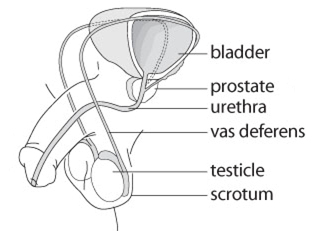Genital

Genital is the common sexually transmitted infection caused by the human papillomavirus (HPV), which cause discomfort to the scrotum, scrotum contents, the testicles and supporting structures. This is very common in all age group including the young adults and middle-aged men. If the problem is not treated at the time this may lead to a dangerous health problem.
Symptom
- Flesh-coloured growths or lumps around your penis, anus or upper thighs
- Itching or bleeding from your genitals
- A change in the normal flow of pee (for example, sideways).
Prevention
- Remember to cover your warts with protection, while having sex.
- Use new latex gloves for rimming and fingering
- Avoid touching and rubbing the wart, as this causes the infection.
- If you are indulged with multiple partners, it’s important to use condoms and have regular STI tests.
Causes
- Sex without a condom or dental dam
- Oral sex without a condom
- Sharing sex toys
How are genital warts treated?
Basically, there is no cure for this virus, but there are some chances that the body may be able to clear the virus over time. The only treatment is to remove warts and the treatment depends upon the type of warts you have. The two main types of treatment are enlisted below:
- Applying a lotion, cream or chemicals to the warts
- Destroying warts by heating, freezing, or removing them.
What is a vasectomy?
The term “vasectomy” is derived from the tubes name which is blocked during the procedure: vas deferens. A vasectomy is a simple surgery done to cut or block the small tubes that carry sperm, so that sperm can’t leave your body and cause pregnancy. This is the quick procedure and person get discharge from the hospital the same day. Also, it’s an extremely effective process to prevent pregnancy — almost 100%.
Vasectomy is the permanent process so they can’t be reversed, which means you would not able to make anyone pregnant once it is done.
- The incision method, and
- The no-scalpel (no-cut) method.
A vasectomy is performed by the urologist, a doctor who specializes in the male reproductive system and male urinary tract.
1. With the incision method, one or two small cuts are made in the scrotum by the doctor to access the vas deferens. Through this cut, the small section of the vas deferens is cut out and removed. The doctor cauterizes (seal with heat) the ends and tie them with stitches. And the same procedure is performed by the doctor on the other testicle, it can be done through the same opening or through a second scrotal incision. When the vas deferens has been tied off from both the testicle, the doctor use a few stitches to close the opening in the scrotum.
2. In the "no-scalpel" method, at the one side of the scrotum, a small puncture hole is. The doctor finds out the vas deferens under the skin and pulls it out through the hole. Vas deferens is cut and a small section is also removed. The ends are either cauterized and the same procedure is then performed on the other testicle. As the puncture hole is extremely small so, no stitches are needed in this method.